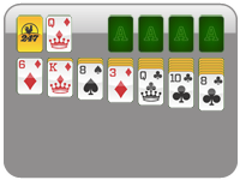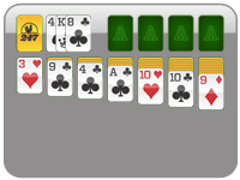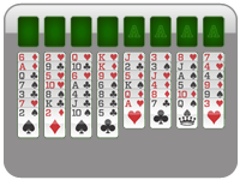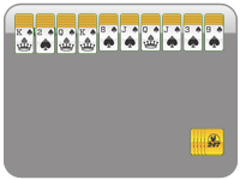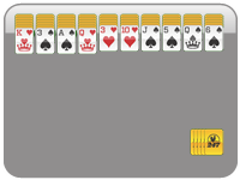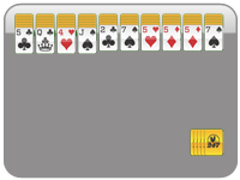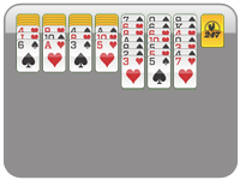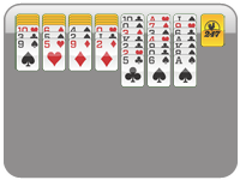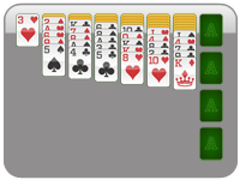Memory-Focused But Easy Card Games for Seniors with Dementia

An estimated 40% of individuals aged 65 and over will experience some form of memory loss, and 5-8% of us will experience dementia. Symptoms generally worsen from mild to obtrusive to everyday life, gradually deteriorating. Thus, it’s no wonder the fear of memory loss is a significant anxiety among senior citizens. It’s important to recognize that, while many of us may experience memory loss as we age, dementia is found frequently as severe and deliberating memory loss.
This article will introduce some fun, easy card games for seniors with dementia. Not only can these card games for dementia patients help improve memory and cognition, but they’re also great to play socially -- and can be enjoyed by all!
Benefits of card games for older adults

Card games for seniors with dementia can be a great way to boost attention, memory, and cognition. However, it’s important to emphasize that card games alone are not an active form of medical treatment. If you’re anxious about your risks of suffering from dementia or other forms of cognitive impairment, make an appointment to discuss your concerns with your medical provider. The World Health Organization’s website has useful information to learn about dementia, its symptoms, and ways to maintain quality of life despite someone’s diagnosis.
This article will discuss ways that card games can be tailored towards seniors experiencing severe symptoms of memory loss and/or dementia, and how these games can be made accessible and enjoyable for all -- even those with memory loss or dementia.
Card games can stimulate many important brain functions which are key to keeping our cognitive abilities sharp as we age. Functions like memory, organization, and active socialization are all beneficial aspects of engaging in some relaxing card playing.
Like muscles or other physical components of our bodies, keeping our minds healthy is especially important as we age, and a reliable way to keep a muscle healthy is to actively use it. For this, we’ll show how card games can use some of these critical functions of our cognitive abilities:
Card games for dementia patients help improve memory and concentration
Card games for dementia patients and seniors in general frequently utilize working memory and light but consistent concentration. These games aren’t overly demanding, and are simple enough to spend hours playing if you enjoy the game. The casual skills necessary for many card games are what makes them better for older gamers with less motor ability or energy for prolonged, complex strategic thinking.
Card games for the elderly provide opportunities for social interaction
For those of us who are vulnerable to dementia, frequent socialization is recommended alongside mental stimulation to keep our minds sharp. Studies have found epidemic rates of loneliness among seniors in America -- and the effects of social isolation and depression can be significant.
Luckily, easy card games for seniors are a great way to socialize! Inviting your friends over for cards is easy and takes little setup. It can be done almost anywhere, and nowadays, it is even possible online. This all makes playing card games a great avenue to spend time with friends and loved ones.
Simple card games for seniors relieve stress and boost mental health
Even if you’re retired, life can be stressful sometimes. Studies suggest that seniors are one of the most susceptible groups to loneliness and mental health issues in the United States alone. Persistent depression has been found to lead to a higher risk of dementia and mild cognitive impairment (MCI).
It’s important to always talk to your doctor if you’ve experienced a mental health crisis or are experiencing feelings of prolonged depression, as well as any concurrent memory issues you’ve potentially experienced. However, activities and card games for older adults can be a great way to prioritize lowering your stress levels and boosting your mental health, by incorporating some fun into your everyday life.
Easy card games for seniors with dementia
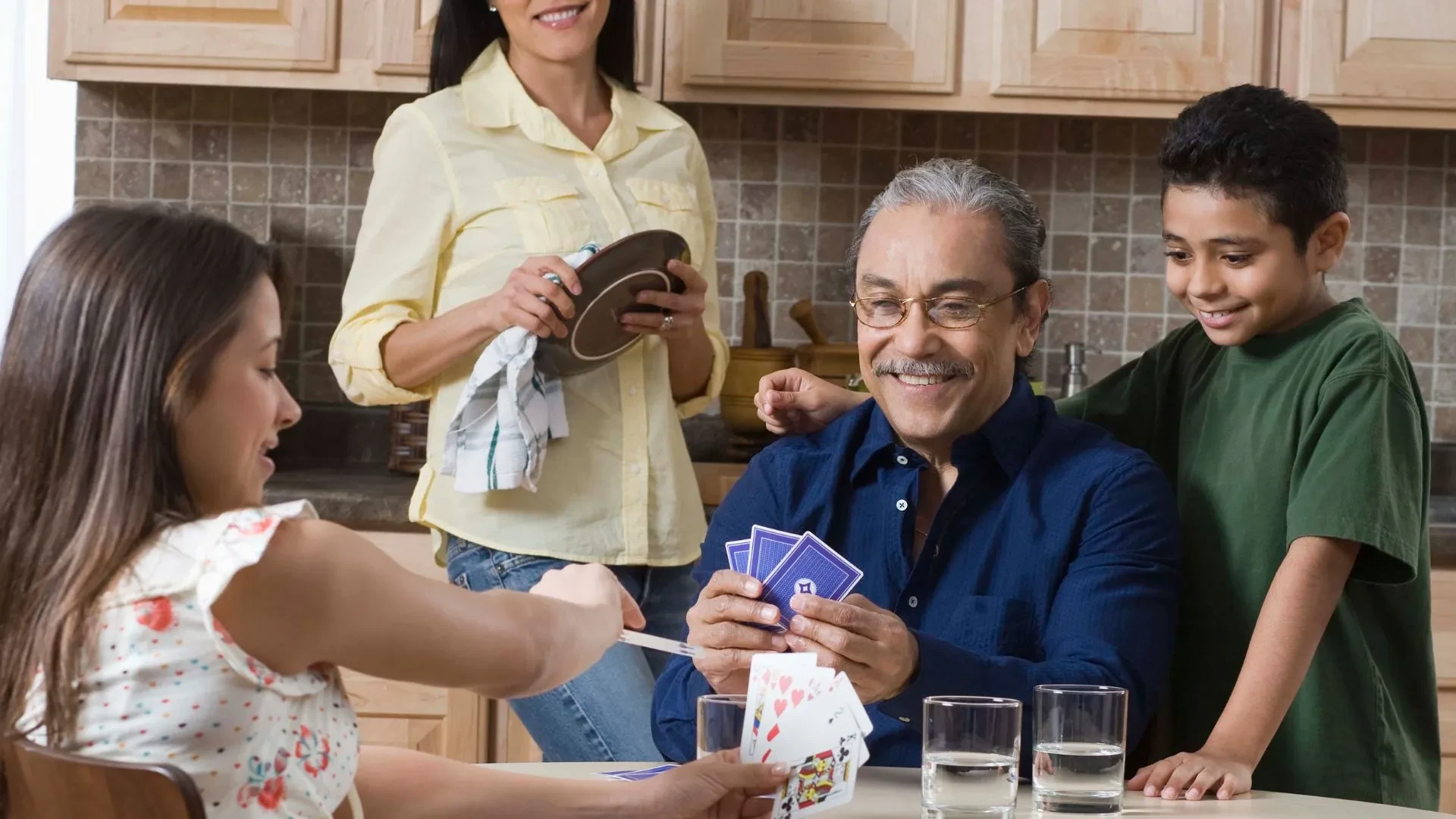
Players have dozens of picks for great memory-focused card games to play. Many mind-engaging possibilities are particularly good for players looking to test their memory or patience, and others are great for socialization! Here are just a few fun, easy card games for seniors:
Go fish
Number of players: 2-5 players.
Objective: Win as many "books" as possible to be the highest scorer of the game. A book is a four-of-a-kind.
What you need: 52-card playing card deck.
How to play: Playing Go Fish is relatively simple. Each player is given an equal number of cards and must attempt to "fish" the cards of other players which match cards in their own hand. If you cannot find those cards from the selected player, you must draw from the center deck and end your turn, so long as you don’t find the card you were looking for.
Benefits of playing: Socialization, memory and comprehension are used frequently throughout the game. It’s an easy game to pick up, with short rounds -- play as many or as few as you like!
Klondike Solitaire
Number of players: 1 player.
Objective: Form 4 foundational piles of cards, organized by suit.
What you need: 52-card playing card deck.
How to play: Create a tableau of 28 cards -- seven piles which increase proportionally -- and use the rest to create your stockpile. You start the game with the first card of each tableau pile flipped, and you play by revealing and arranging your cards to build your tableau and win.
Benefits of playing: Klondike Solitaire is easy to pick up whenever you have the time. Very replayable and strategic, and a great way to brush up on your organization skills.
Freecell
Number of players: 1 player.
Objective: Arrange cards in ascending order by suit in 4 foundational piles.
What you need: 52-card playing card deck.
How to play: Much like Klondike Solitaire, Freecell Solitaire requires you to create four foundational piles from your deck’s aces. The difference between the two games is that Freecell is much easier, more relaxing and, as the name suggests, has four free cells which make the arrangement of the tableau much easier.
Benefits of playing: For those looking for a more laid-back solo card experience. Keeping track of the tableau can still be complicated even though it starts entirely revealed, and the mental stimulation of focused play is still just as beneficial as any other game on the list.
Bridge
Number of players: 4 Players.
Objective: Cooperating with your partner, win the most tricks to win the game!
What you need: 52-card playing card deck.
How to play: Bridge is a game in the "trick-taking" family. Two opposing teams compete to score points by bidding on the tricks each player believes they’ll be able to win. The highest bidder attempts to achieve the desired trick, while the opposing team does anything they can to prevent them.
Benefits of playing: Easy avenue for socialization and a focus on theoretical, forward-thinking play.
Accessibility tips for making card games senior-friendly

Use extra large or vision-friendly playing cards
For seniors with impaired eyesight, large-print cards can make games easier on the eyes and more accessible to play. For instance, large-card Solitaire for seniors can be a really useful game to not only exercise the mind but also pass some time.
Be patient and allow extra time to play
Many of us play at a different pace, and for many seniors playing fast-paced rounds simply isn’t realistic. There’s no shame in slowing the pace of the game down so everyone can play comfortably, or in putting the game down to pick up later.
Even if you stop the game midway, a winner can still usually be determined. Games exist for our enjoyment, and even more complicated card games aren’t unplayable if you can’t subscribe to the time investment required.
Simplify the rules
Adapting the game to make it friendlier to seniors or impaired players isn’t anything to be afraid of -- it’s just a game, after all, and we’re all in it to have fun! For example, playing Solitaire you could choose to bypass the need to stack cards in alternating colors if you’re playing with your own deck. The game is just as engaging while being more accessible to those with memory difficulties or dementia.
Use card holders
Card holders are great for players with limited hand and finger dexterity, or who simply may get tired of holding onto the hands of cards for a long time. You can invest in card-holders cheaply online. Or better yet, you can try card games for seniors that don’t require one to hold cards in hand such as Solitaire!
Play card games for senior citizens online
Playing card games online can be a fantastic alternative for anyone who can’t reliably set up games using their own cards, or has restrictions on who they can be in close physical contact with. Thankfully, online games such as 247 Solitaire have made it possible to play some of our favorite card games for seniors online.
Boost your recall and play free online games for seniors with dementia!

Cognitive impairment doesn’t have to dramatically reduce your quality of life. With support from friends and family, those of us suffering from dementia or memory loss can still enjoy the games and activities we used to. Your access to the internet can help too. Play free online games for seniors with dementia at 247 Solitaire!
Solitaire Games
More Solitaire Games
More Games
Solitaire News
Disclaimer
DISCLAIMER: The games on this website are using PLAY (fake) money. No payouts will be awarded, there are no "winnings", as all games represented by 247 Games LLC are free to play. Play strictly for fun.

